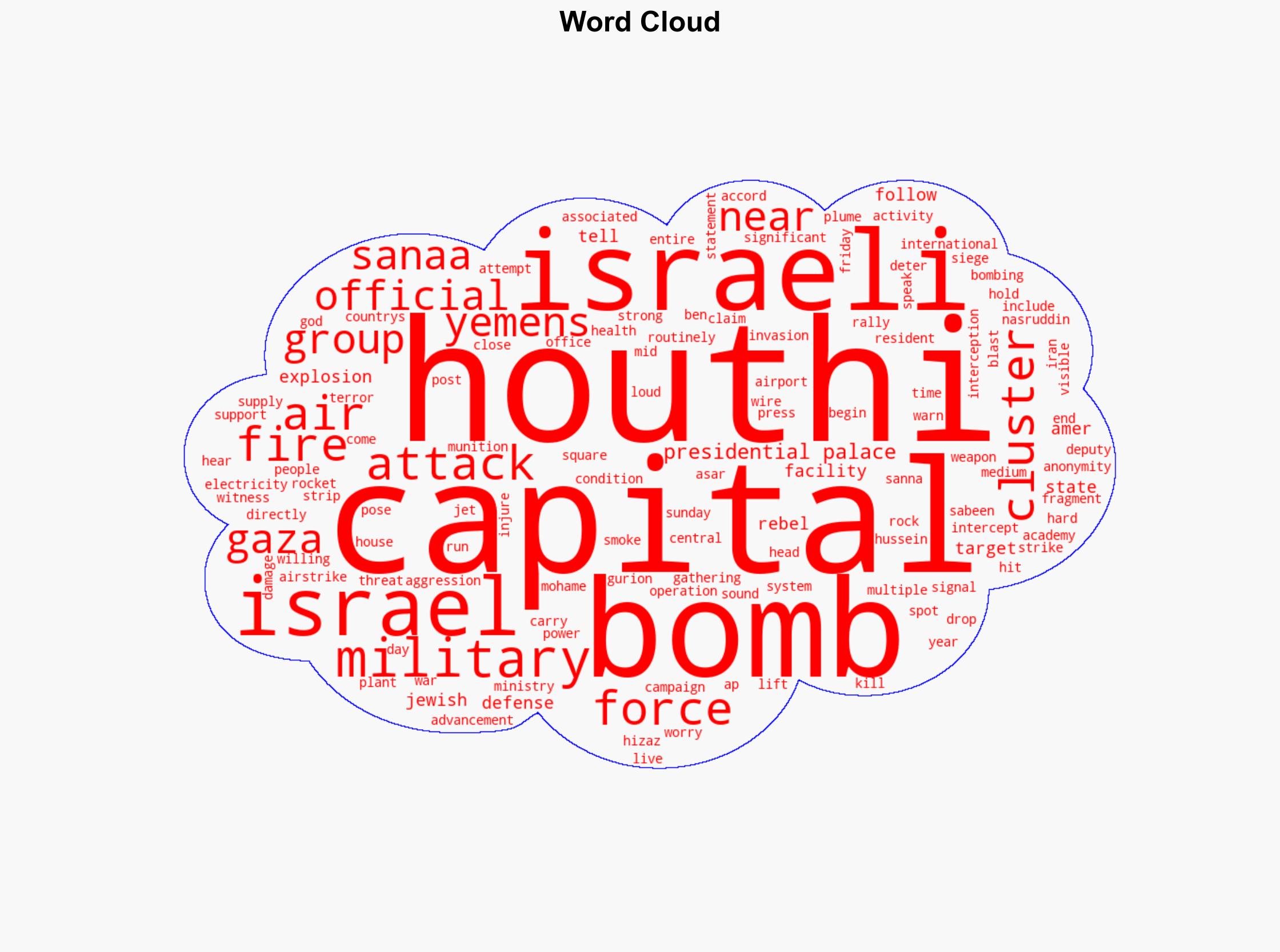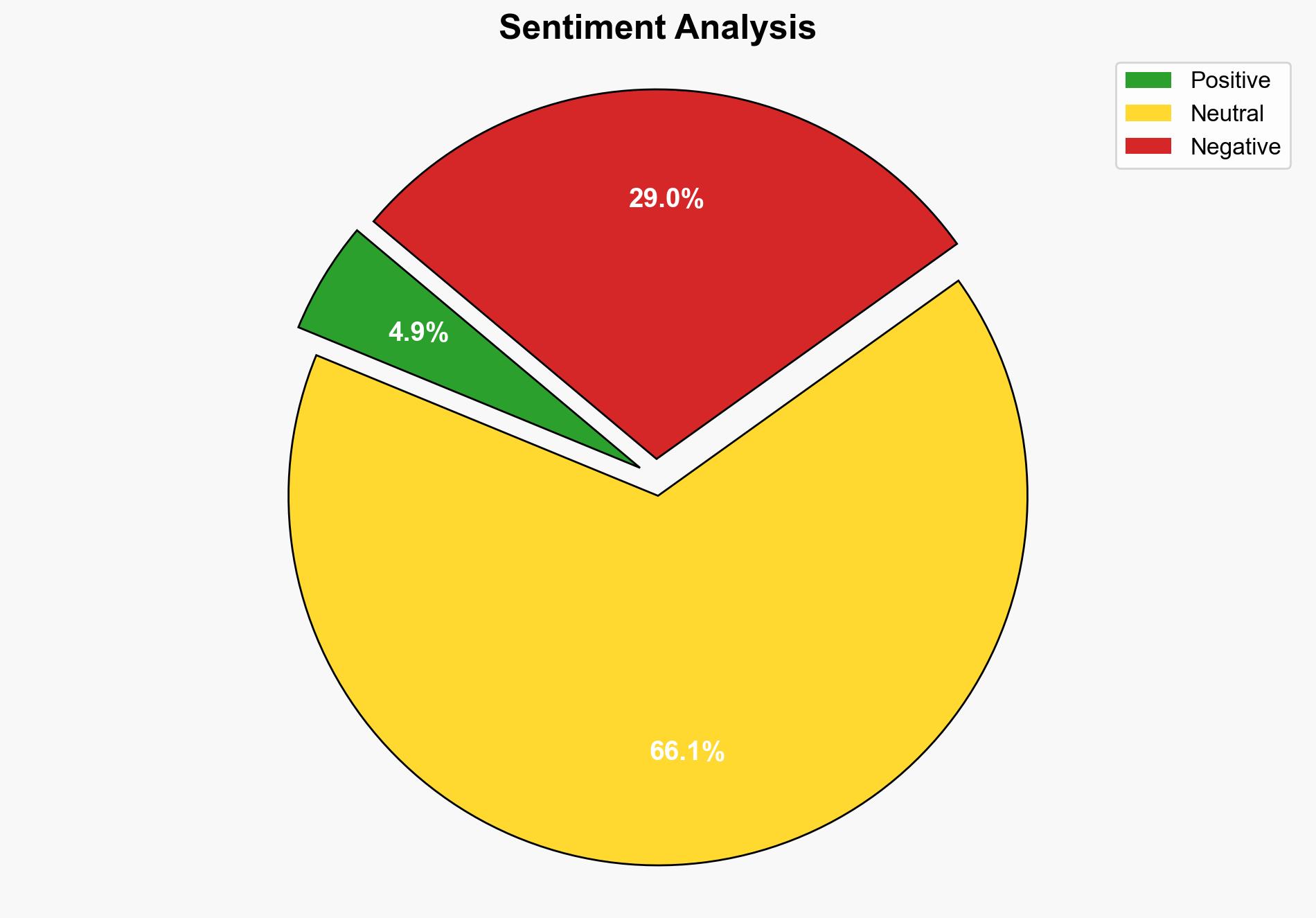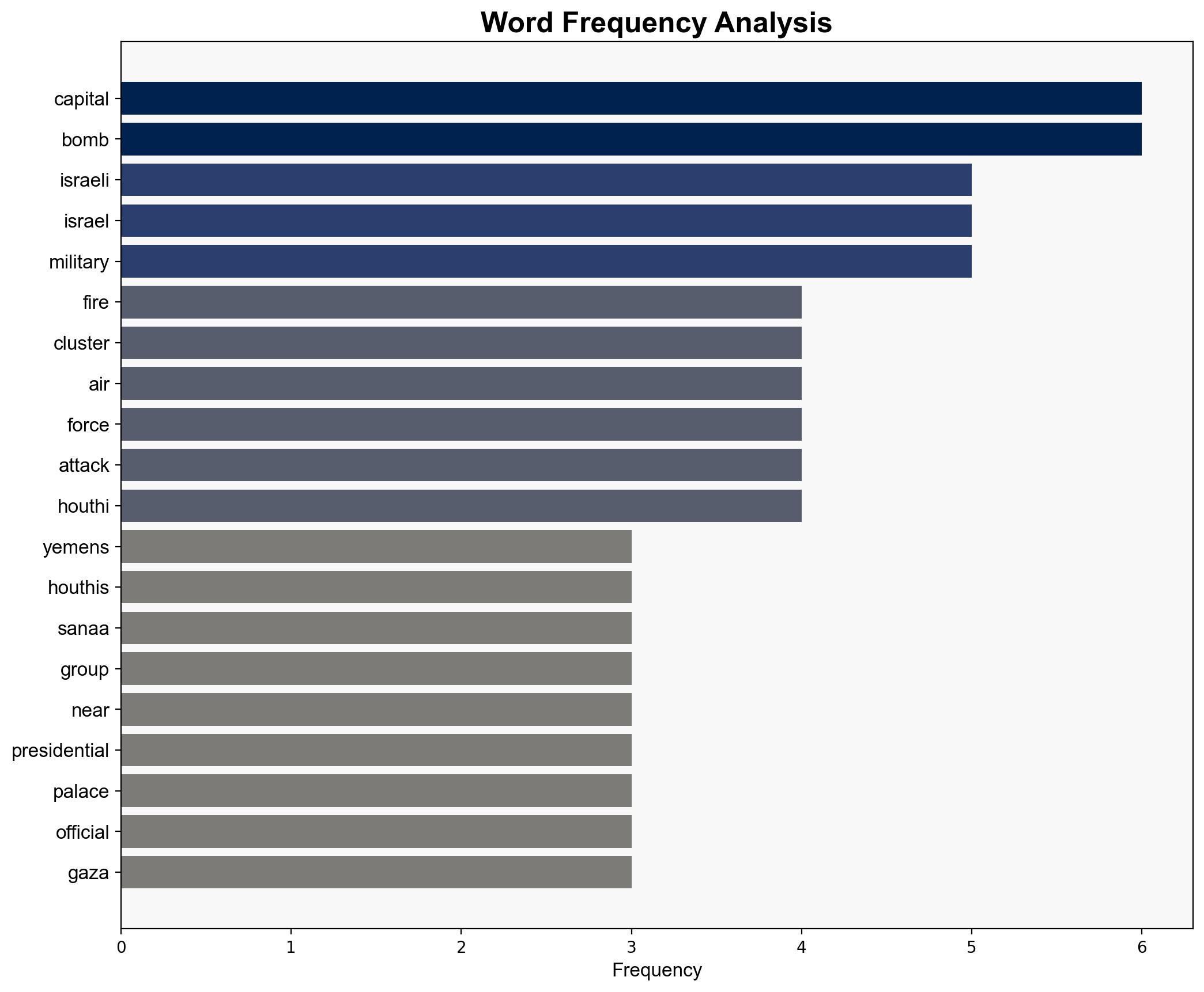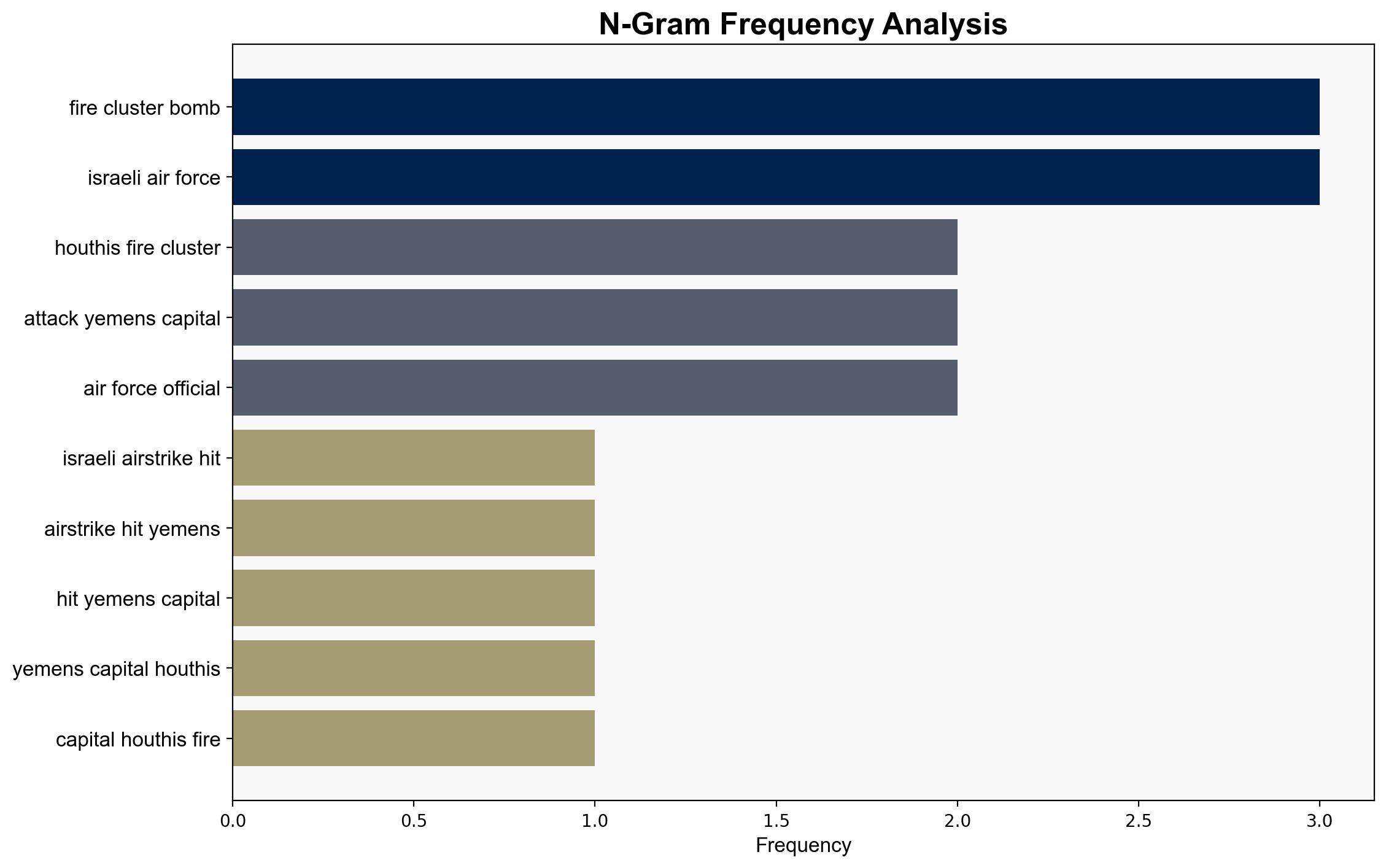Israeli airstrikes hit Yemens capital after Houthis fire cluster bomb – New York Post
Published on: 2025-08-24
Intelligence Report: Israeli Airstrikes Hit Yemen’s Capital After Houthis Fire Cluster Bomb – New York Post
1. BLUF (Bottom Line Up Front)
The most supported hypothesis is that the Israeli airstrikes on Yemen’s capital are a direct response to the Houthi’s use of cluster bombs targeting Israel, indicating a significant escalation in regional hostilities. Confidence level: Moderate. Recommended action includes diplomatic engagement to de-escalate tensions and intelligence sharing with allies to monitor Houthi capabilities.
2. Competing Hypotheses
– **Hypothesis 1**: The Israeli airstrikes are a retaliatory measure against the Houthis for their cluster bomb attack on Israel, which is perceived as a direct threat to national security.
– **Hypothesis 2**: The airstrikes are part of a broader Israeli strategy to weaken Houthi capabilities in Yemen, possibly linked to wider geopolitical objectives involving Iran’s influence in the region.
Using ACH 2.0, Hypothesis 1 is better supported by the direct sequence of events and statements from Israeli officials. Hypothesis 2 lacks direct evidence linking the airstrikes to broader strategic goals beyond immediate retaliation.
3. Key Assumptions and Red Flags
– **Assumptions**: It is assumed that the Houthi’s cluster bomb attack was intended to provoke a response from Israel. Another assumption is that Israel’s response is solely defensive.
– **Red Flags**: The reliance on statements from anonymous officials and the lack of independent verification of the events raise concerns about potential bias or misinformation. The absence of direct evidence linking Iran to the specific attack is a critical gap.
4. Implications and Strategic Risks
The escalation between Israel and the Houthis could lead to broader regional instability, potentially drawing in other state and non-state actors. The use of advanced weaponry by the Houthis suggests increased capabilities, possibly with Iranian support, which could alter the balance of power in the region. There is a risk of further military engagements and potential impacts on global oil markets if the conflict disrupts shipping routes.
5. Recommendations and Outlook
- Engage in diplomatic efforts to mediate between Israel and the Houthis to prevent further escalation.
- Enhance intelligence cooperation with regional allies to monitor and counter Houthi advancements.
- Scenario Projections:
- Best Case: Successful diplomatic intervention leads to a ceasefire and de-escalation.
- Worst Case: Escalation leads to broader regional conflict involving multiple state actors.
- Most Likely: Continued tit-for-tat exchanges with limited regional spillover.
6. Key Individuals and Entities
– Nasruddin Amer: Deputy head of the Houthi media office.
– Hussein Mohame: Resident near the presidential palace in Sanaa.
7. Thematic Tags
national security threats, cybersecurity, counter-terrorism, regional focus




